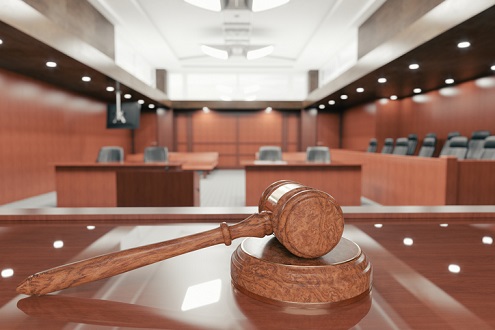The drug court judges I have listened to seem to believe that the people standing before them are making willful choices to engage in self-pleasure, either by over-indulging in alcohol or using illegal substances. They can’t imagine doing this themselves and are outraged that others do. They believe the people possess depravity so pervasive that people “like that” will steal and assault others to get what they want, breaking laws and committing criminal acts.
Drug court judges’ policies seem based on the belief that “bad people” doing wrong can be made to become better and do right through publicly humiliating scoldings, sanctions, punishments, and incarceration. For substance use disorders, that logic doesn’t hold up.

Substance use disorders and addiction are considered a medical illness of the organ of the brain because of the very presence of what drug court judges use to try to “heal” them: adverse consequences.
If people don’t have substance use disorder, the brain is wired for punishment to work. Most people who try substances – up to 80% – don’t like their experiences (consequences) with substance use and quit or only use occasionally after they try them. The 10% of Americans with substance use disorders who don’t quit – literally and medically – have something going wrong with their brains.
Persistence in use despite negative consequences is the defining symptom of the illness. That the criminal justice system attempts to use the symptom of the illness to treat the illness is nonsensical. And results in tragic harm.
If drug court judges understood and acted upon these three facts, I believe the the whole system would be transformed:
1. Substance use disorder/addiction is a medical illness. We’re all out of our league in helping people with it unless we’re medical professionals or are adding adjunctive services to medical treatment plans.
2. Punishment not only doesn’t work and doesn’t help, it hurts. Punishment doesn’t treat medical illnesses. More than 2/3 of people with substance use disorders have experienced punishing trauma already, particularly in early childhood – including the chronic trauma of poverty and economic hardship. Punishment, particularly sanctions and jail time, decreases the likelihood of any desired outcomes by further traumatizing, stressing, and destabilizing an individual’s already stressed and unstable system.
3. Positive urine drug screens a) have a high incidence of being false positive – for some substances, 20% – and b) indicate nothing more than the presence of the defining symptom of the illness: persistence in use despite adverse consequences. Evidence of using substances may indicate an acute phase of the illness or a negligible flare-up. Determining this, and subsequent treatment, support, and/or monitoring, would belong in the realm of medical/clinical expertise, not legal opinion.
“Drug courts, which coerce people into treatment under threat of criminal punishment, continue to expand nationally. But three decades of evidence clearly shows that most drug courts do not reduce imprisonment, do not save money, do not improve public safety and ultimately fail to help people struggling with drug problems.”
My understanding is that drug court judges compete among themselves for low dropout and recidivism rates.
Drug court judges would improve their stats if they:
1) Quit jailing people for positive urine drug screens. (See New bill could prevent jail time for relapse in Massachusetts, The Daily Free Press, 2/7/19.)
2) Let people have the meds prescribed to them to treat their diagnosed medical illnesses. (See Setting Precedent, A Federal Court Rules Jail Must Give Inmate Addiction Treatment, NPR, 5/4/19.)
3) Use evidence-based treatment for meth misuse and addiction, particularly contingency management. (Please contact me for a copy of my literature review on evidence-based treatment for methamphetamine use disorder.)
Drug courts are increasingly under attack for medical, legal, and constitutional violations. Perhaps tantalizing drug court judges with the power of evidence-based treatment to improve their outcomes might tempt them to allow it.
For further reading
- Here is my full report on drug courts, approximately 4,500 words.
- Here is the commentary on drug courts from Changing the Narrative.
- Here are highlights from my interview with Changing the Narrative on the false beliefs underpinning drug courts.
- Here are some steps one might take to challenge the narrative about drug courts.
- Here is a summary of my findings about drug courts, several of which I referred to in the Changing the Narrative interview.
- Here is the category that contains all the posts on drug courts.
Image: iStockphoto
Anne Giles, M.A., M.S., L.P.C., is a counselor in private practice in Blacksburg, Virginia.
The views expressed are mine alone and do not necessarily reflect the positions of my colleagues, clients, family members, or friends. This content is for informational purposes only and is not a substitute for medical or professional advice. Consult a qualified health care professional for personalized medical and professional advice.
